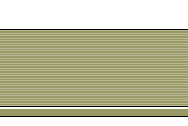No
Money Down
In this difficult economy
where stock valuations are questionable, one of the best investments
is real estate. But for many potential buyers, the problem is coming
up with a down payment to make this all-important purchase. This
should not be the case. It is possible to buy a home with nothing
down, meaning no down payment. There are several methods by which
eligible home buyers can minimize or even eliminate down payments.
They include: VA loans, Owner financing, Lease/purchase, House trading,
Job-related federal programs, and State and local government programs.
VA
Loans - The method of purchasing a home with no down
payment that most people are familiar with is through the Department
of Veterans Affairs, or VA. This benefit is available to active
and retired members of the military service, veterans, POW's and
MIA's and their unmarried widows. All branches of the service including
the Coast Guard are eligible. Also members of Selected Reserves
or National Guard who have completed six years may be eligible along
with many with WW II service from the merchant marines, military
academies and others pulled into service for the war effort. Many
older veterans may recall a time when they were entitled to use
this benefit only once in their lifetime. This was changed in 1989.
Now, the only existing stipulation is that an eligible person may
use this benefit on only one house at a time. As with all VA loans,
the house must be used as a primary residence. It may not be a rental
home or second/vacation home. There is no maximum home loan amount.
Nothing-down VA foreclosures available to everyone What many people
do not know is that you do not have to be a veteran to purchase
a VA foreclosure with nothing down. VA foreclosures are available
to the general public. Some require nothing down or just a fee of
$500. Although the homes are sold from the VA, purchasers must obtain
conventional or FHA loans unless they are veterans or active military.
VA foreclosures with nothing down or $500 fees can be found among
those from banks, lending institutions and federal agencies.
Owner
Financing, Lease-Purchase - If a glut of unsold homes
develops in a market, some sellers -- especially those in a hurry
-- become willing to assist the buyer. There may be additional pressure
on sellers of used homes when they compete with builders in their
areas who fund down payments on new homes. These sellers may agree
to lease-purchase or owner-financing plans. In both cases, purchasers
do not pay down payments to acquire the properties. Although they
allow a home buyer to purchase a home with no money down, these
programs can be good and bad for the purchaser and should be approached
with caution. As with any legal transaction, you should use a standard
legal form. Lease-purchase forms are obtainable at most major office
supply stores. Owner financing contracts are not readily available
and will have to be drafted by an attorney. In the case of lease/purchase
agreements, the seller agrees to a price that he will sell the house
for at some future date and the buyer usually pays a monthly amount
several hundred dollars more than what the home would receive as
a rental. Depending on how the agreement is written, this additional
money can be a "down payment" savings plan. A portion of the additional
money can be returned to the buyer when the house is sold and used
as a down payment. If the buyer decides not to buy the house, all
additional moneys are forfeited. If the buyer decides to complete
the transaction, he or she would secure a mortgage from a lender.
These arrangements are similar to those in owner financing except
in that case the seller is the lender. There are two areas of concern
for the buyer with these types of purchasing options. In both cases,
because the buyer is not paying a mortgage company he does not receive
any of the tax deductions for the interest on the house payments.
This may be an acceptable trade-off for the ability to purchase
a home without a down payment. The second area of concern requires
more judgment. Because the buyer is paying the seller each month
instead of a mortgage company, if the seller were to go bankrupt
or lose the home in foreclosure, the buyer's entire investment might
be lost. But on the flip side, there have been several occasions
where persons have entered into lease-purchase agreements and then
found purchasers for the homes at amounts much greater than the
selling prices contractually agreed upon. The lessees bought the
houses from the sellers and then resold the houses for a large profit
in the same day.
House
Trading, Lines of Credit - Many professional investors
acquire homes with no money down by trading one property for another.
In some cases, they trade one large property for several smaller
rental properties. Or they trade houses in different cities to acquire
a vacation or retirement home. Property trading is also a legal
way to avoid the capital gains associated with selling a property.
Another way to acquire a property with no money down may be with
a line of credit secured by the equity in another property. This
allows the homeowner to purchase another property using the accumulated
equity in a home without selling the original property.
HUD
- The Office of Housing and Urban Development (HUD) offers
special financing for first-time home buyers. This program is based
upon need and is designed to allow low-income families to obtain
their first home without a significant down payment or closing fees.
Also, many HUD foreclosure homes require no down payments.
Job-Related
Federal Programs - The federal government also has programs
to help farmers and police personnel acquire homes with nothing
down. For those with limited income who wish to live in rural areas,
the Rural Economic and Community Development Administration offers
farmers home loans with nothing down. Monthly payments may be subsidized
and the interest can be as low as 1 percent. To encourage police
to occupy homes in crime-targeted areas, special federal programs
permit police officers to purchase homes in selected areas with
nothing down. Information is available to law enforcement officers
through their places of employment.
Local
Programs - Some states, counties and cities offer programs
that can eliminate down payments. Often, prospective home buyers
must meet income requirements, hold certain jobs, be a first-time
buyer or agree to buy in a specific area. It can take some sleuthing
to find such programs. Start with your state's housing agency. Your
county or city also may have a housing agency. With so many methods
available to obtain homes with little or no down payment, the goal
of homeownership should be achievable by almost everyone who desires
it.
|





